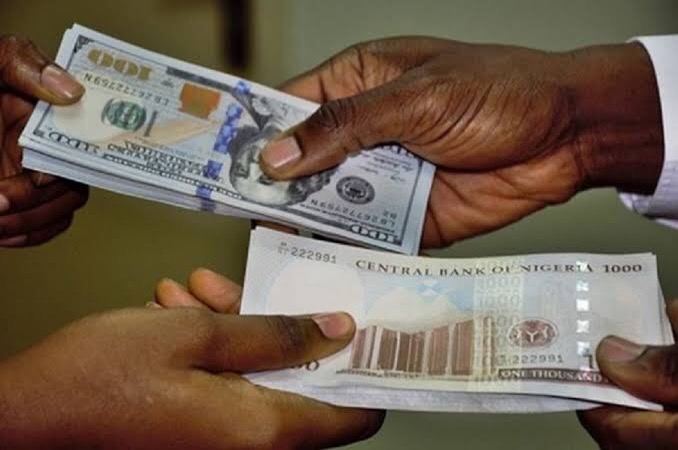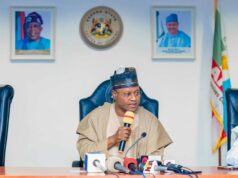The naira on Tuesday depreciated against the dollar at the Investors and Exporters window, exchanging at N430.67.
The figure represented a decrease of 0.42 per cent compared with the N428.88 it exchanged for the dollar on Monday.
The open indicative rate closed at N427.75 to the dollar on Tuesday.
An exchange rate of N444 to the dollar was the highest rate recorded within the day’s trading before it settled at N430.67
The naira sold for as low as N415 to the dollar within the day’s trading.
A total of 158.68 million dollars was traded in foreign exchange at the official Investors and Exporters window on Tuesday.
Meanwhile, some financial experts have described as “worrisome” the unwholesome depreciation of the nation’s currency.
The experts, who expressed their concern in separate interviews with NAN in Lagos, urged the Federal Government to save the local currency by addressing the rising inflation and other causative factors.
The experts said the persistent fall experienced by the nation’s currency due to the rising inflation had reduced its purchasing power and made people lose confidence in the domestic currency.
A Professor of Capital Market, Uche Uwaleke, urged the Central Bank of Nigeria (CBN) to deal with the inflation challenge driven largely by cost-push factors.
READ ALSO: EFCC raids Bureau de Change in Abuja over naira devaluation
Uwaleke urged the apex bank to ensure increased power supply through decentralisation and encouraging mini and off-grid solutions.
“Ensuring availability of petroleum products by decentralising refining, encouraging modular refineries, and privatising government refineries. This will reduce the huge foreign exchange that is spent on fuel imports,” he said.
Uwaleke also enjoined the apex bank to scale up its development finance interventions in agriculture and MSMEs after a thorough evaluation of existing ones in order to boost non-oil exports.
He further urged the CBN to work with other stakeholders such as the Nigeria Ports Authority and customs, among others to accelerate the implementation of the RT $200 billion programme.
He said: “Given that the surge in demand is largely speculative, the CBN can quickly restore confidence and allay fears by increasing the level of interventions in the foreign exchange market in view of the relatively huge external reserves (about $40 billion) at its disposal.”
He enjoined the National Assembly to make a law that would prohibit public office holders from sending their children/wards abroad for education in order to conserve foreign exchange.
Also, a Professor of Economics at the Olabisi Onabanjo University, Ago-Iwoye in Ogun State, Sheriffdeen Tella, said to salvage the local currency, “we have to stop payment for imports till we are sure of what we are paying for.
“Nobody should be allowed to pay for local items in foreign currencies like paying local footballers in dollars for winning local leagues,” Tella said.
The Director of the Centre for Economic Policy Analysis and Research (CEPAR), Ndubisi Nwokoma, stressed the need to minimise political interference in the allocation of foreign exchange and deal directly with the end-users to address the free fall of the naira.
Nwokoma said the government must address the issue of oil theft by ensuring that all oil export proceeds were remitted to the CBN.
He also stressed the need to stimulate non-oil exports and discourage the use of dollars in electioneering.
- How Professor forced me to trade my virginity for admission – Student - February 7, 2024
- Oil price rises after Saudi Arabia production cut announcement - June 5, 2023
- Subsidy: Fuel price hits N520 in Edo, Delta - May 30, 2023










